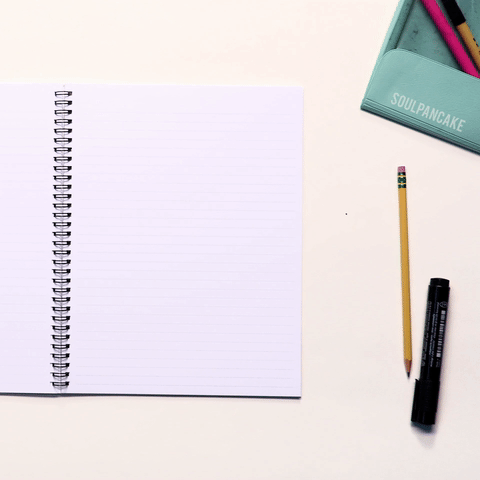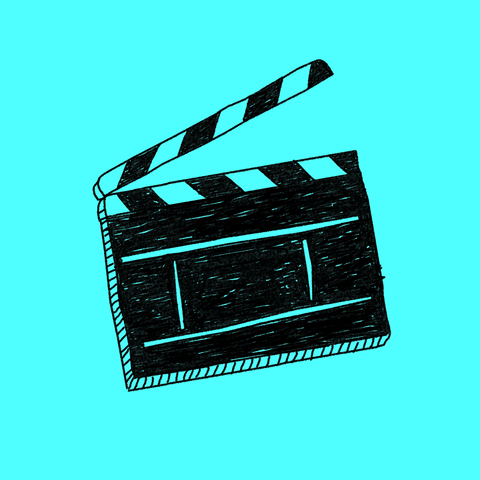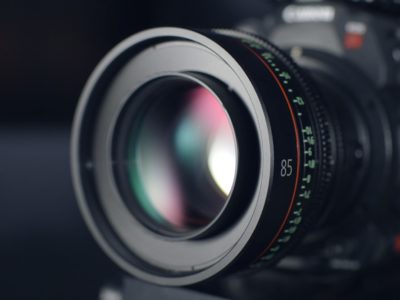Being a journalism major can mean a lot of different things. You could go into print journalism, turn your gaze toward social media or even become a blogger. The term journalism embodies many different paths, but for me, I found myself pursuing broadcast journalism more fervently than I ever did in the past. Especially after this year.
I took one class in particular that completely changed my perspective on broadcast journalism and all that goes into it.

I added Journalism 339 (Video Content Creation) to my schedule early during course selection in my sophomore year. After speaking with my advisor about what sort of classes would help me on my way to success in broadcast journalism, I learned that Video Content Creation in particular would prepare me well. A class comprised of putting together video news packages and learning how to use Adobe Premiere Pro seemed like the perfect course. While I heard of the heavy workload this class entailed, nothing could prepare me for the real challenges the class provided when I started my junior year.
Seeing as I’m also part of my university’s honors college, it was required to convert this class into an honors requirement class.
Doing so not only made the class more challenging, but it also increased the weekly time commitment to my academics. Naturally, academics should always find itself as a student’s first priority, but paired with the already taxing load of interviewing, videotaping, audio recording and editing all for one class, doing an extra honors assignment for the same class came as a real stressor. My honors assignment meant producing a longer video than usual, which included more people to interview, more footage to gather and longer hours of editing. I knew I wanted to pursue my goal of broadcast journalism, but suddenly I felt scared that I might not pass a class that serves as a crucial stepping stone towards my dream career.
Even more terrifying, I heard from lots of older students that the professor in charge of the class gives off an incredibly intense impression.

It turned out they were all right in saying so. My professor outlined each lesson with specific steps to success, describing to us exactly what formats to use in our news stories, exactly what camera angles helped tell the story and hundreds of other tips that filled the folders of my computer to the brim. For our assignments, he graded each video critically, pulling apart our projects while pointing out each and every place for improvement.
I can safely say that I barely finished my first few weeks of classes without feeling too overwhelmed. How could I keep track of all my other schoolwork and extracurriculars when there was so much I needed to do for one class? In addition, I begun planning my honors project and I knew the work posed a challenge. However, even in spite of the daunting tasks ahead of me, I felt a burgeoning excitement inside. For the first time in my college career, I found myself actually doing broadcast work. I never got the chance before, but now, I finally got to handle a camera, go out into the field and collect footage, conduct interviews and tell stories. Regardless of the level of difficulty, if this course proved anything to me it was that I definitely want to continue working in the field of broadcast journalism in the future.
Every week, I learned more than I ever did before.

I knew (more or less) how to operate a camera from film classes I took in high school but I never understood exactly what all the buttons on the cameras meant. My professor also taught us all how to assemble and disassemble an entire camera, tripod and microphone setup within ten minutes flat. There definitely is a learning curve as you figure out where each wire goes and what each setting does on the cameras. I learned such techniques can really up the quality of your work once you understand them.
In addition to learning the technical aspects of videography, my professor also taught us the key to really impacting an audience with your storytelling. I learned that interviewing the right people remains crucial to telling a story properly and that the first person who may want to speak to you about a story may not prove the right person to include in your video; I also learned the importance of each story needing a central character to ensure you bring a human aspect to the video. I even found out that making sure you write your story according to the video you already possess makes for a much better narrative rather than trying to cobble together a script before going out to record the video footage you need.
All of these tips came in handy as I confronted my daunting honors credit project for the class.

I knew I wanted to craft a story that would really consider the problems my college campus faced that semester. There had been instances of racism and sexism across campus and who else’s duty other than a journalist to tell the story of how my school responded to these incidents? Working alongside my professor, I found myself gathering b-roll of campus wide rallies and protests.
Additionally, I learned that finding the right people to interview proves more difficult than I initially thought. Still, hard work always pays off; after weeks of running around campus while emailing various administration members, I secured an interview with my university’s Vice Chancellor of Equity, Diversity and Inclusion. My honors video story ended up coming out amazing because of it and yes, you guessed it…I got an A in the class.
The most important thing I learned from taking this class? Broadcast journalism absolutely holds a place in my future.

I knew for certain that I wanted to pursue this career path, even if it meant three more semesters like the one I just went through. Even more importantly though, I learned not to feel discouraged when life gets difficult. Just because something doesn’t come easy, doesn’t mean you should give up, especially if you hold a real passion for it. So, that’s what I’ll leave you with. When life gets hard, it just means you need to work harder. Especially if working harder means taking another step toward your dream. That’s what this experience taught me. I’ll never give up if it means finally getting to be a broadcast journalist one day.
















